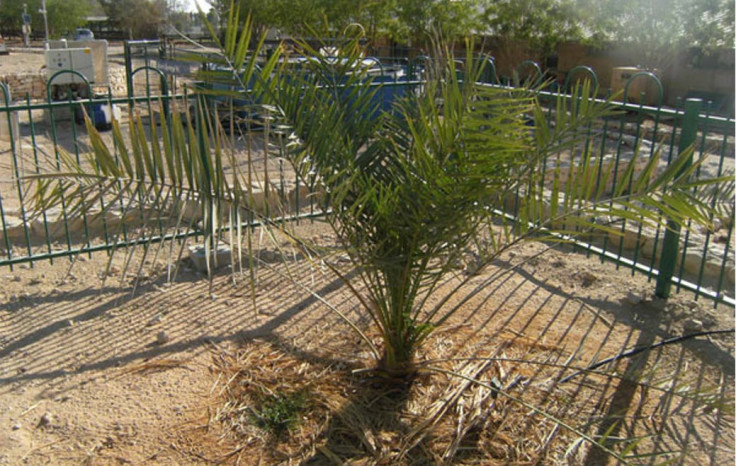Israel: Once-extinct ancient date palm 'Methuselah' sprouts offshoots

An extinct date palm, chronicled in the Bible and the Quran and brought back to life ten years ago, has sprung a offshoots.
Revived from a stockpile of seeds stored in a 2000 year old jar, the Judaean date palm is now flourishing, according to its keepers at the Arava Institute for Environmental Studies at Kibbutz Ketura in Israel.
The date is historically credited as a staple crop in the Kingdom of Judea and this ancient source of food, shelter and shade reportedly spread across the Jordan River valley from the Sea of Galilee in the north to the shores of the Dead Sea in the south.
Recognised as a symbol of good fortune and fabled to have diverse powers - including those of an aphrodisiac, a contraceptive and medical properties purported to fight cancer, malaria and toothache - the Judean date palm was reportedly destroyed by an invading Roman army in 70AD.
A chance discovery of a jar containing the ancient seeds during an excavation in Masada, a mountaintop fortress built over 2,000 years ago on the shore of the Dead Sea, led to its recovery and storage at Bar-Ilan University in Israel.
In 2005, botanical researcher Elaine Solowey, director of the Arava Institute decided to plant a few seeds.
After eight weeks, a small green shoot emerged from one seed, producing a sapling and becoming the oldest known tree seed to germinate.
The plant was nicknamed Methuselah, after one of the characters in the Bible.
"He is over three meters [ten feet] tall, he's got a few offshoots, he has flowers, and his pollen is good," Solowey told National Geographic. "We pollinated a female with his pollen, a wild [modern] female, and yeah, he can make dates."
Plans to plant an ancient date grove are next but that would require a female plant from an ancient seed as a mate for Methuselah.
Genetic tests indicate that Methuselah is most closely related to an ancient variety of date palm from Egypt known as Hayany, fitting a legend that claims dates came to Israel with the children of the Exodus, Solowey says.
Methusaleh is reportedly not the oldest plant on earth. In 2012, scientists in Russia grew a plant from 32,000-year-old seeds buried in Siberia.
© Copyright IBTimes 2025. All rights reserved.





















